Map Based Questions: Agriculture | Social Studies (SST) Class 10 PDF Download
Q.1: On the given political map of India, four leading wheat-growing states of India are marked by 1, 2, 3 and 4. Identify these and write their correct names on the line drawn against each in the given map.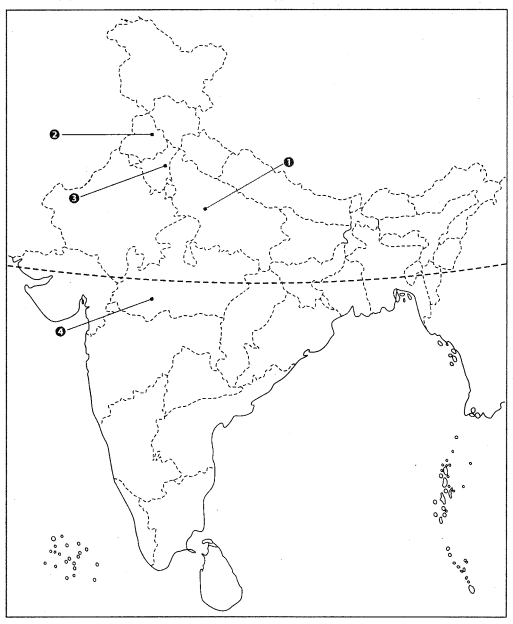
Ans:
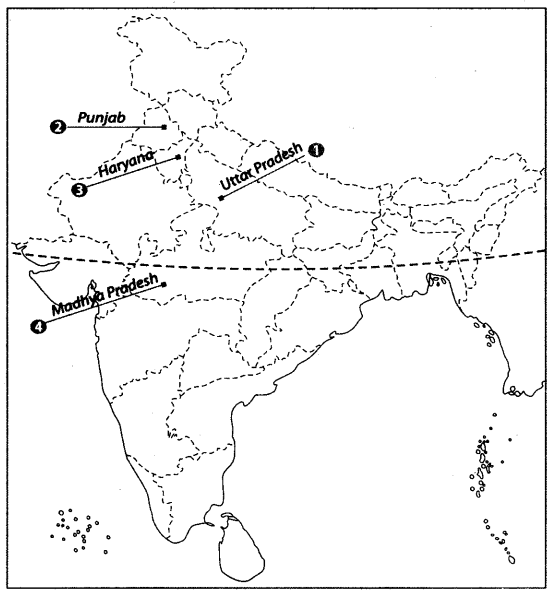
Q.2: On the given political map of India, four leading rice-growing states of India are marked by 1, 2, 3 and 4. Identify these and write their correct names on the line drawn against each in the given map.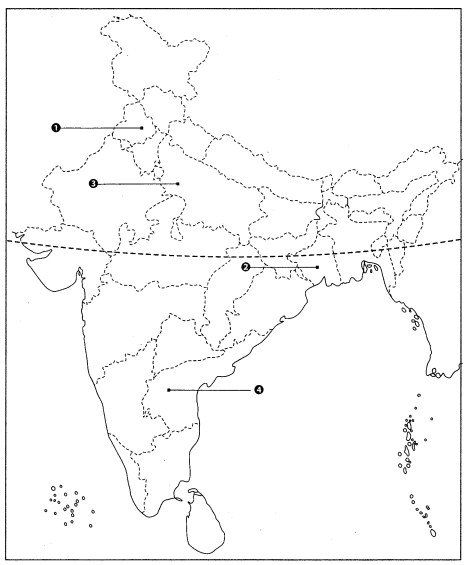
Ans:
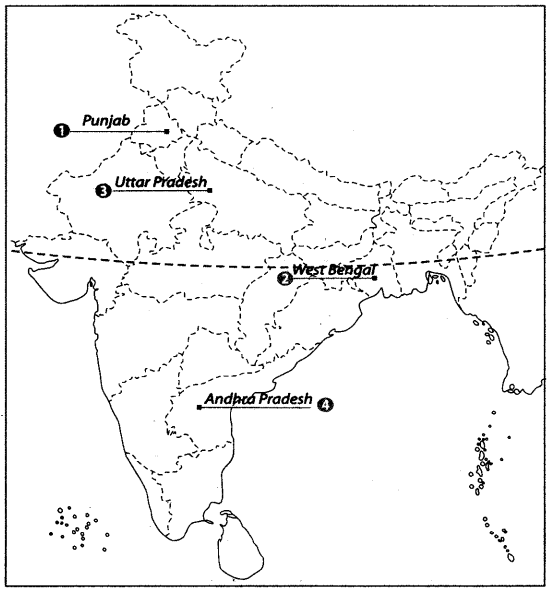
Q.3: On the given political map of India, three leading sugarcane growing states of India are marked by 1, 2 and 3. Identify these and write their correct names on the line drawn against each in the given map.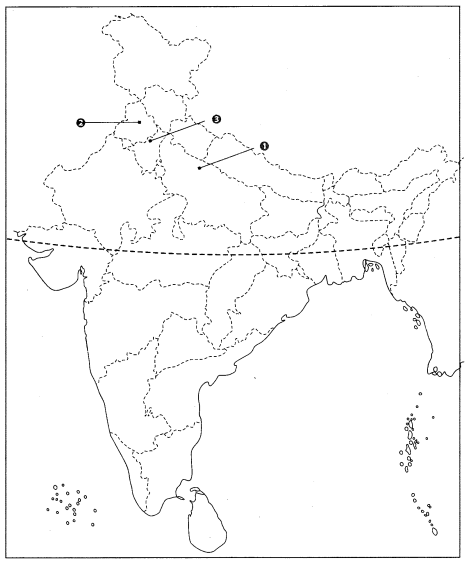
Ans:
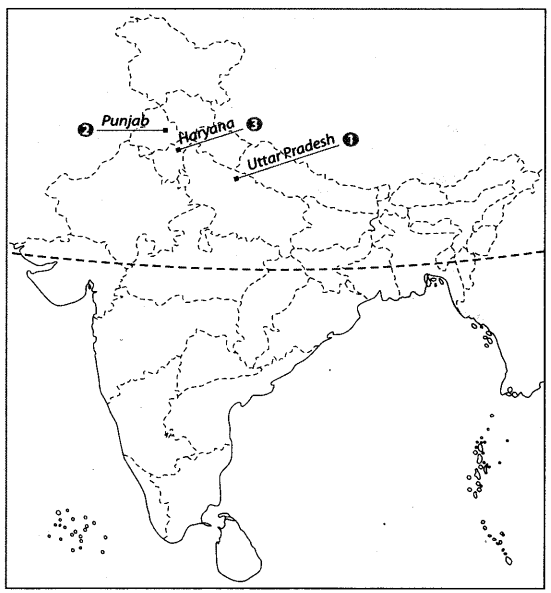
Q.4: Locate and label the following items on the given map with appropriate symbols.
1. Tea producing regions
2. Coffee producing regions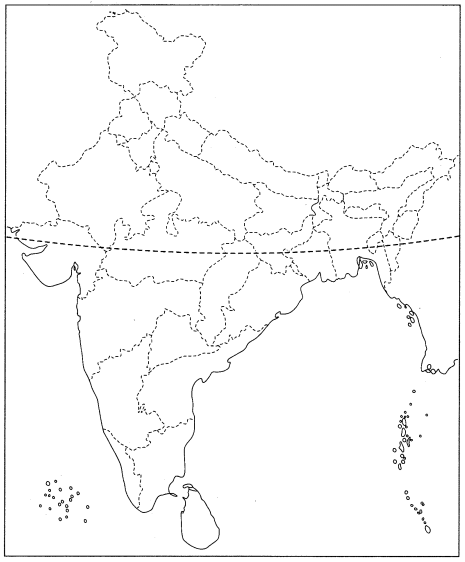
Ans:
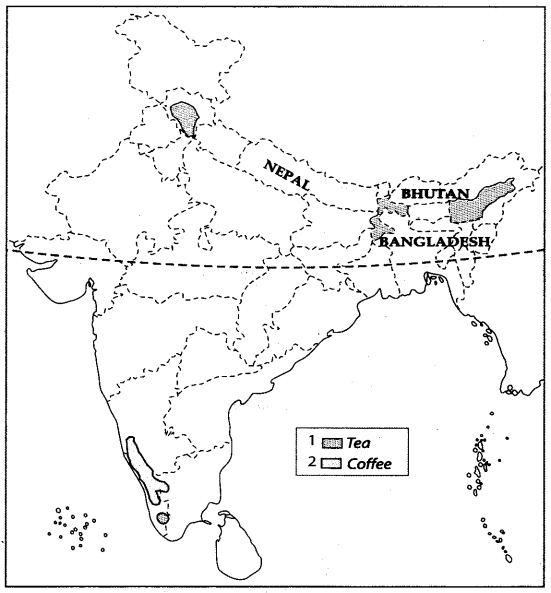
Q.5: Locate and label the following items on the given map with appropriate symbols.
1. Jute producing regions
2. Rubber producing regions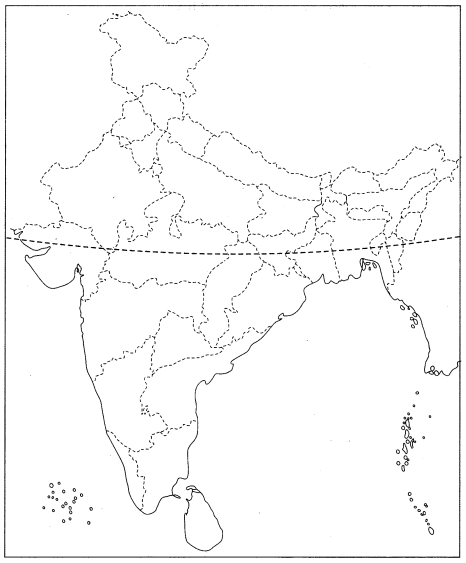
Ans:
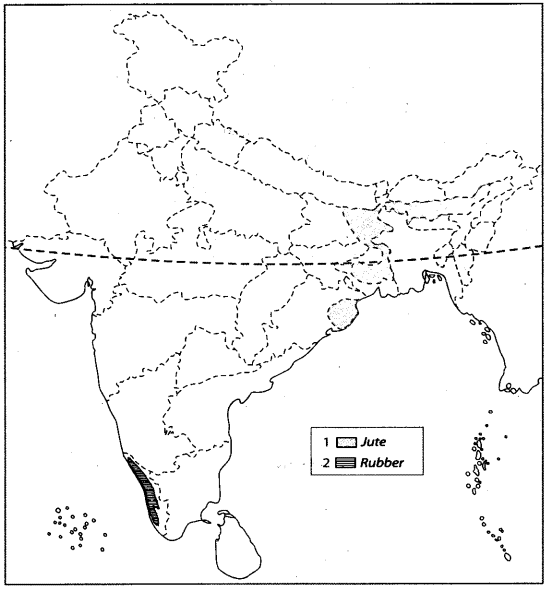
Q.6: Locate and label the following items on the given map with appropriate symbols.
1. Any two jowar producing states of India
2. Any two maize producing states of India
3. Any two bajra producing states of India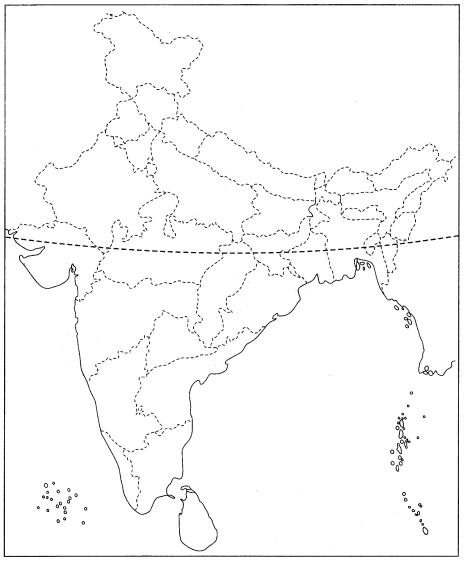
Ans:
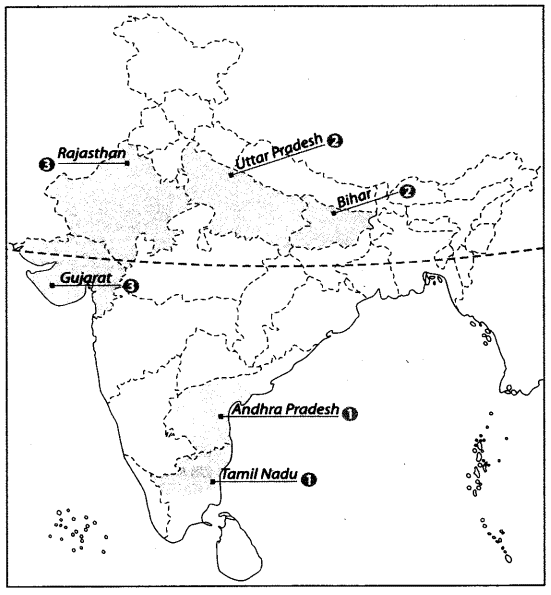
Q.7: Features are marked by numbers in the given political map of India. Identify these features with the help of the following information and write their correct names on the lines marked in the map.
1. Major wheat producing areas
2. A National Park
3. Leading jowar producing the state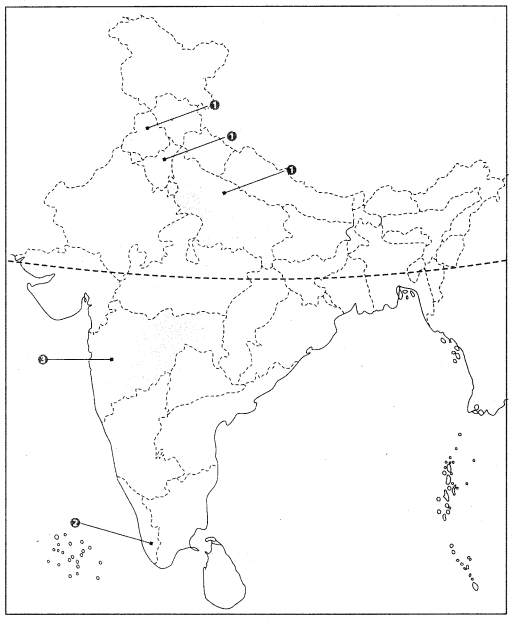
Ans:
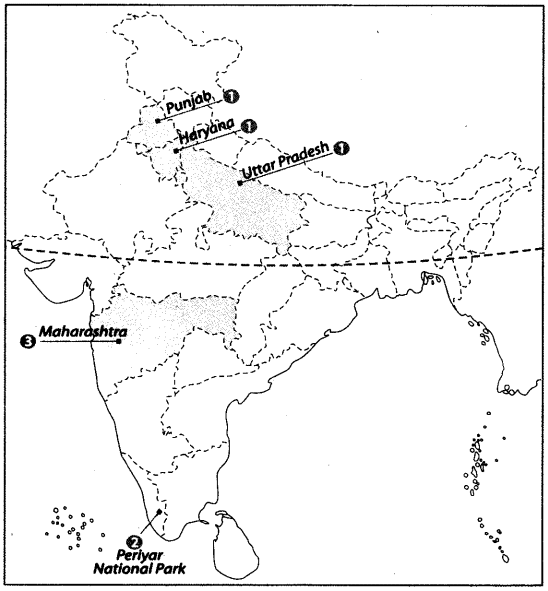
Q.8: Features are marked by a number in the given political map of India. Identify these features with the help of the following information and write their correct names on the lines marked in the map.
1. A beverage crop-producing state
2. The leading jute or Golden Fibre producing state
3. Leading coffee producing state
4. Major sugarcane producing state 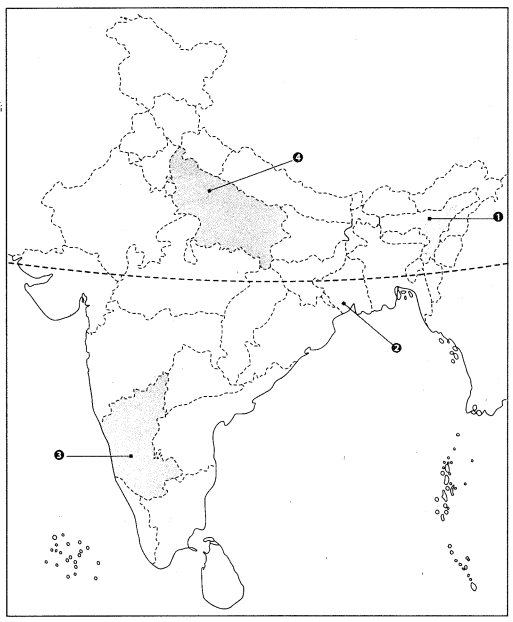
Ans:
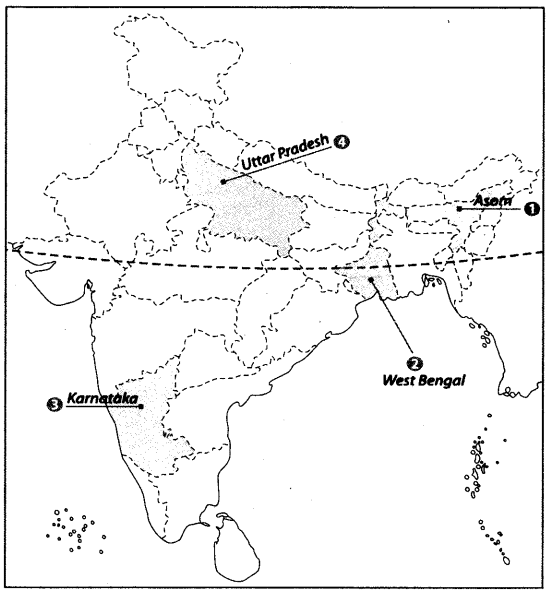
|
88 videos|630 docs|79 tests
|
FAQs on Map Based Questions: Agriculture - Social Studies (SST) Class 10
| 1. What are the key agricultural practices that enhance crop yield? |  |
| 2. How does climate change affect agriculture? |  |
| 3. What role does technology play in modern agriculture? |  |
| 4. What are the benefits of organic farming compared to conventional farming? |  |
| 5. How can farmers adapt to changing agricultural policies and regulations? |  |
















